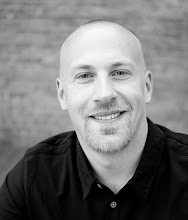Alan Shlemon continues our series: Let me be blunt: denying same-sex couples from marriage is not the same as denying interracial
couples from it. Although anti-miscegenation laws were immoral, the same
mistake is not happening today. And despite the rhetorical force of making the
comparison, merely claiming it’s the same does not make it so.
One of the problems with this comparison is that it presumes
sexual orientation is a genetically predetermined trait like race. But it’s not,
as I’ve
argued in a previous post. Numerous researchers have also testified to this.
Francis Collins, who led the Human Genome Project to identify every human gene,
has said regarding homosexuality: “Whatever genes are involved represent
predispositions, not predeterminations…”[i]
Harvard geneticist and homosexual, Dean Hamer, admitted that, “The best recent
study suggests that female sexual identification is more a matter of
environment than heredity.”[ii] Even the
American Psychological Association, a group that advances homosexual causes, doesn’t
claim that genes determine sexual orientation.
They say, “Although much
research has examined the possible genetic, hormonal, developmental, social,
and cultural influences on sexual orientation, no findings have emerged that
permit scientists to conclude that sexual orientation is determined by any
particular factor or factors.”[iii]
Homosexuality, then, develops also from environmental
factors, not merely genetic ones. And since environmental factors vary in type,
frequency, and degree, homosexuality is not inescapable. Depending on your
developmental environment, you could or could not develop same-sex attractions.
Race, however, is entirely
genetic and therefore inescapable. You’re not born an African American – you’re
conceived as one. Your race is
determined the moment the chromosomes of the sperm and egg blend together. Nothing
will change that. Neither your mother’s diet, the hormones in her womb, nor intrauterine
trauma will alter your birth as an African American. And once you’re born, your
race is impervious to cultural, social, or psychological influences during
childhood development. Nothing can alter – even slightly – your race.
That means homosexuals can’t claim they’re like African
Americans in the sense that they are born that way. Their plight is not the same.
African Americans are genetically born that way. Homosexuals are not.
But the differences grow more significant. Since
homosexuality is not merely the product of genes, it is mutable. Homosexuals
can and do change. I personally know men who have changed. This type of
mutability has been observed for thousands of years and documented by
researchers for the last one hundred years (I’ve
written about this in a previous post). In fact, sexual orientation in
females is quite fluid.
Actress Anne Heche is an example. She grew up as a
heterosexual, got involved in a lesbian relationship with Ellen DeGeneres, then
married a man with whom she had a child, and now is living with another man. The
same is true of former “Sex and the City” star, Cynthia Nixon. She grew up
heterosexual, married a man, and had two children. In 2004, she became a
lesbian. Nixon also infuriated the homosexual community by claiming that her
change in orientation was, “a choice.” She went on to explain: “I understand
that for many people it’s not, but for me it’s a choice, and you don’t get to
define my gayness for me… Why can’t it be a choice? Why is that any less
legitimate?”[iv]
My point is not that sexual orientation is a choice. I’m
simply acknowledging that it’s mutable for some people.
Race, however, is immutable. I don’t know any African
Americans that have changed their race. None of them have become Swedish for a
few years. It can’t happen, even in principle.
But there’s even a more significant problem with comparing
homosexuals with African Americans, especially with regards to the issue of
marriage. Interracial couples can marry because they can fulfill an essential function
of marriage. As Dr. Jennifer Roback Morse has explained, marriages bind
males and females for the long term and protect the rights children have to be
with their parents. Male-female unions are the precise kind of pairing that
produces children and provides the ideal environment to raise them. Having an African
American marry a Caucasian doesn’t impact that function in any way.
Homosexual couples, on the other hand, don’t include both sexes.
Not only are they incapable – by nature – to produce children, but they are
also ill-suited to raise kids who need a mother and a father (I’ve
argued this in a previous post). That’s why the state has never sanctioned
the relationship of two men or two women, but they sanction interracial unions
so long as they’re heterosexual.
Homosexuals are hoping to convince the culture that their plight
is the same as African Americans. Naturally, this has a strong, rhetorical
effect. But with careful reflection it becomes apparent the two groups are not
parallel in meaningful ways. That’s because race and sex are not the same. This
makes all the difference.
[i] F. Collins, The Language of God: A Scientist Presents
Evidence for Belief (New York: Free Press, 2007), 260.
[ii] D. Hamer
and P. Copeland, Living with Our Genes:
Why They Matter More Than You Think (New York: Bantam Doubleday Dell,
1009), 188.
[iii] http://www.apa.org/topics/sexuality/orientation.aspx,
accessed 4/30/12.
[iv] http://www.nytimes.com/2012/01/22/magazine/cynthia-nixon-wit.html?pagewanted=all,
accessed 4/30/12.
Think Christianly with Jonathan Morrow
Labels: Alan Shlemon, Ethics, Faith and Culture, same sex marriage, Tough Questions - Homosexuality

